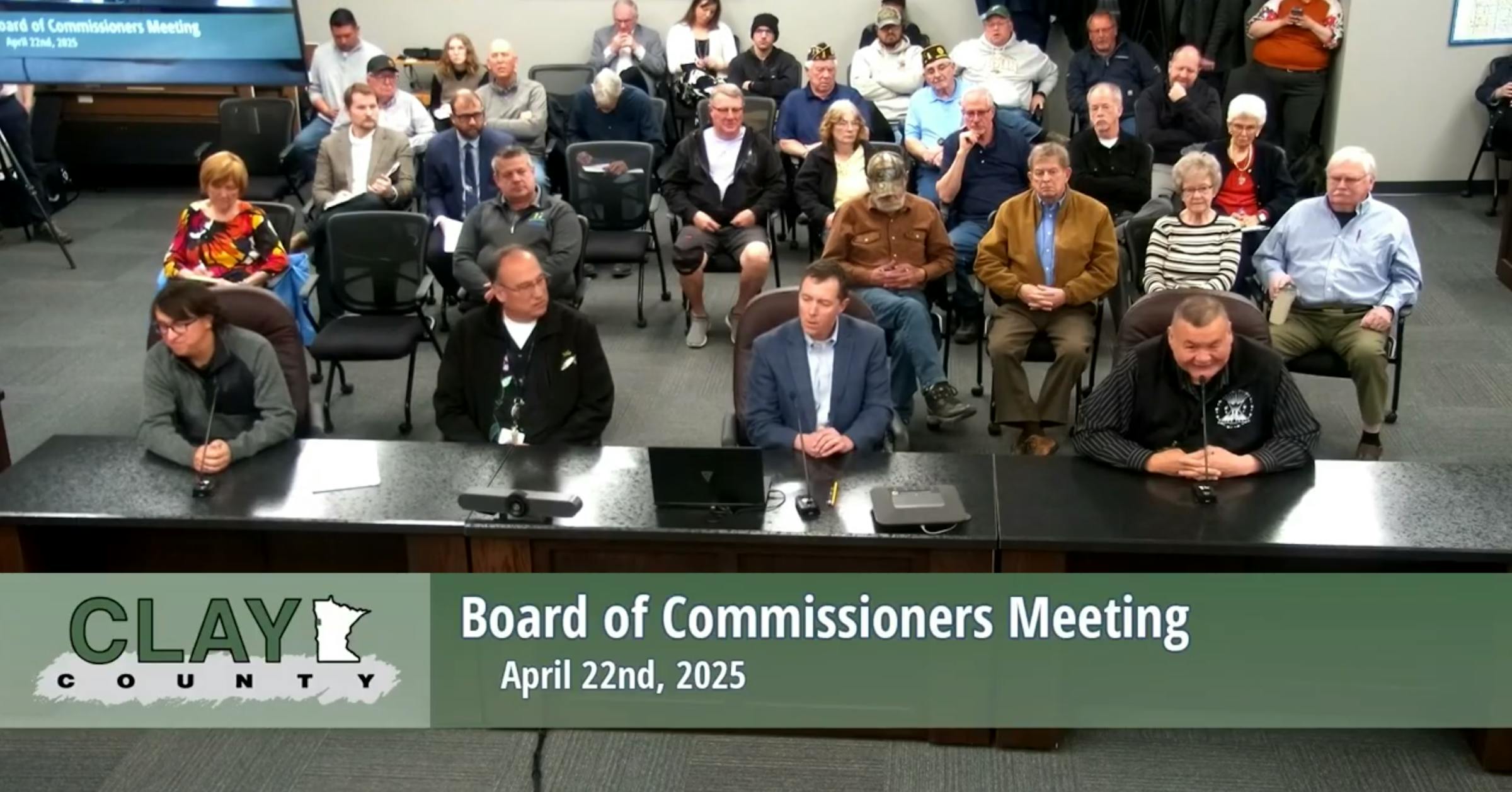A major reset is beginning in the Australian gambling industry. On the one hand – the entry of American giant Bally’s with $ 300 million and ambitions to control Star Entertainment. On the other, tough measures from regulators: blocking illegal casinos, mass self-exclusion of players through BetStop and updated anti-money laundering laws. And to manage it all – in the chair of the head of the VGCCC sits not someone from gambling, but an environmentalist. Together with https://500rules.com/best-australian-casinos/, we tell you how it all ties together and why the market will never be the same again.
American Invasion of the Australian Gambling Industry: Bally’s on Its Way to Controlling Star Entertainment
On the face of it, it’s an investment deal. But if you look closely, it’s a chess move with far-reaching consequences. Bally’s, an American corporation that owns 19 casinos in the US, is making a bold move into the Australian arena: A$300 million in exchange for potential control of Star Entertainment Group, a key player in the country’s gambling industry.
What’s behind this move and how it could change the rules of the game in the local market and for the best Aussie casino? Let’s break it down point by point, without too much water.
What Exactly Happened?
Bally’s offered to invest AU$250m in Star Entertainment. At the same time, the largest shareholder of Star, Bruce Matheson, is ready to invest another AU$50 million. In total – a tidy AU$300 million. For Star this is a chance not only to stay afloat, but also to win back the losses of recent years.
It is important: these funds will be used to cover term liabilities, including possible fines, legal fees and running costs. Details of the deal have been disclosed in Australian Financial Review and Reuters, and the proposal itself has already been approved by Star’s board and its creditors.
Why is Star in This Situation?
The company is going through some bad times, to say the least. At the start of 2024, CEO Steve McCann announced a reduced cash position to AU$79m and an inability to underwrite the half-yearly report. Previous attempts at refinancing – from Salter Brothers and King Street Capital – have failed.
To pay off its debts, Star was forced to sell its stake (50 per cent) in its flagship Brisbane Queens Wharf project. The buyers are joint venture partners Chow Tai Fook and Far East Consortium.
Why Bally’s Needs It
Bally’s Corporation, despite its geographical distance, is not just looking for profit – it is looking for a springboard for expansion into the Asia-Pacific region. CEO Soo Kim emphasised that the deal is not a one-off help, but a long-term strategic partnership.
What Bally’s has to offer:
- Operational expertise in casino management;
- New standards of transparency and corporate governance;
- The opportunity to attract foreign investors;
What Will Bally’s Get?
If the deal receives regulatory approval, Bally’s will gain a controlling 50.1 per cent stake, which automatically gives:
- Control of the business in Sydney, Brisbane and the Gold Coast;
- The right to appoint key managers and influence development strategy;
- The ability to rebuild Star’s image after a string of scandals and investigations;
What Could Go Wrong?
Despite board and creditor approval, regulators have the final say. Given Star’s reputational problems (including money laundering scandals and loss of licences), the government could impose additional conditions or delay the review.
Conclusion: Who is Playing Whose Game?
Against the backdrop of a general decline in revenue from Australian casino sites and stricter oversight by the authorities, the deal between Bally’s and Star looks like a surgical intervention to save the patient. But underneath it is a cold calculation: the American corporation comes not only with money, but also with ambition.
The question is who will outplay whom in this game. Star gets a chance at salvation, and Bally’s gets the key to the Australian market. But how will the public, regulators and competitors behave? The answers aren’t in yet – but the bets have been placed.
Australian Roulette on Pause: More Than 40,000 People Have Said ‘stop’ to Gambling through BetStop
In an age where access to Australian casino sites is two clicks away, voluntarily excluding yourself from the game takes as much courage as a big bet. BetStop, Australia’s national self-exclusion register set up to protect citizens from the harmful effects of gambling, has officially surpassed the 40,000 registrations mark. This isn’t just a statistic – it’s a digital footprint of a growing awareness of risk and personal boundaries.
Who are They – Those Who Choose to Quit Gambling?
Since launching in 2023, by 31 March 2025, 40,121 people had registered with BetStop. Of these, 27,763 enquiries remained active, which means that almost 70 per cent of people have indeed decided to temporarily or permanently close the door to the world of online betting and phone-betting.
Tellingly:
- 39% of users opted for a lifetime exclusion;
- Another 39% opted for a temporary ban of between 3 months and 2 years;
- Only a minority return to the game early or at the end of the term.
This suggests not just a momentary impulse, but a considered decision.
Geography of Refusal: Where More People Say ‘no’ to Gambling
Australia is a country of contrasts, and this is clearly shown even in such specific statistics. Here is a breakdown by state:
- New South Wales – 12,531 registered;
- Victoria – 10,800;
- Queensland – 8,125;
- Australian Capital Territory – 607;
- Northern Territory – 325.
These figures not only reflect population density, but also raise important questions: why exactly are there so many exemptions in NSW? More bookmakers available? More advertising of Australian casino sites? Or just more awareness?
Age Demographics: Youth vs. Addiction
Surprisingly, almost half of all those registered are under the age of 30. Another 32% are between the ages of 31 and 40. That is, almost 80% are young adults, a generation used to a constant online presence but already tired of the endless temptation.
One can only guess how these decisions were influenced by friends’ stories, toxic TikTok content about betting or outbreaks of ludomania among colleagues.
Interesting Cross-Section: A Downward Trend
Paradoxically, the number of new registrations in 2024-2025 has started to decline. For example:
- In the first quarter, 4,521 new users registered – 39.7 per cent fewer than in the same period last year;
- In the second quarter, 5,178;
- In the third quarter, 4,450.
What’s the reason for this? There are several possible explanations:
- The people most at risk have already signed up;
- New players are less aware of BetStop;
- Or perhaps effective regulatory measures started working earlier and the need for self-exclusion started to diminish.
What is Important to Understand about BetStop
BetStop is not a betting ban and best Aussie casino, but a defence tool. After registering, a person:
- Cannot open a new account with licensed bookmakers;
- Is blocked from promotional mailings, including email, SMS and push notifications;
- Gains the ability to focus on recovery rather than temptation;
Conclusion: The Numbers Behind the Decisions
40121 players aren’t just statistics, they exemplify thousands of stories of struggle. Some got tired of losing, some started to notice how betting was affecting relationships, jobs, finances. And some simply realised that freedom is not the ability to bet at any time, but the right to consciously choose not to bet at all.
The BetStop system continues to prove its necessity, even though new registrations are declining. Perhaps this is what success is all about: when the need for a lifeboat gradually disappears because the storm has subsided.
Illegal Jackpot: Australian Regulator Puts Woo Casino and Hollycorn NV in Jeopardy
Australia is known for its tough stance on online gambling and best Aussie casino. The latest wave of scrutiny from the ACMA (Australian Communications and Media Authority) is clear evidence of this. In April 2025, the authority officially warned two major operators, Hollycorn NV (owners of Billy Billion and Crown Slots) and Dama NV, for operating in the Australian market without a licence and circumventing legislation.
What’s Wrong with Billy Billion, Crown and Woo
The ACMA conducted a targeted investigation which found: these platforms provided casino gaming services, as well as mixed luck and skill-based games, despite users being physically located in Australia. This is contrary to the Interactive Gambling Act 2001, which strictly prohibits:
- Online casinos, including slots and roulette;
- Online poker and gaming services that use real money;
- Live sports betting that is accepted while playing a game;
The key point is that even if an operator is registered overseas, it is breaking the law if it provides access to its service to Australian residents. This is enshrined in section 8 of the said law.
Why ACMa Does Not Just Warn, But Acts
If the case was limited to a formal response, the more than 1,100 blocked websites since 2019 would not look so convincing. Australian authorities aren’t messing around. This time:
- Hollycorn NV received a warning for the Billy Billion and Crown Slots platforms;
- Dama NV, operator of Woo Casino, for providing illegal betting, including live betting, in the Australian market;
The reasons why these operators fell foul of the ACMA:
- Providing access to gambling to Australian residents;
- Lack of a licence from any of the Australian states or territories;
- Directly ignoring regulatory requirements;
What This Means for Players
If you live in Australia and use Woo Casino or Billy Billion, know that you are dealing with illegal Australian casino sites. The ACMA strongly advises against using sites against which warnings or blocking measures have been issued.
Possible risks:
- Loss of funds without the possibility of a formal complaint;
- Inability to verify payments and game integrity;
- Lack of access to player protection tools (e.g. self-exclusion via BetStop);
What ACMA Does and How It Works
The Australian regulator has already proven its effectiveness:
- More than 1,100 sites have been blocked since 2019;
- More than 220 sites have left the market voluntarily without waiting for prosecution;
- ACMA regularly publishes a list of new platforms under investigation;
Conclusion: A Signal to the Whole Industry
This warning is not just a tick box in a report. It’s a clear message: Australia is ready to protect its citizens from unlicensed and potentially dangerous gaming activity. And for operators operating without authorisation, the risk of being blocked is becoming increasingly real.
The betting industry is not the ‘wild west’ and the rules work here. If anyone thinks it’s possible to circumvent the system through a foreign jurisdiction – ACMA fundamentally disagrees.
AUSTRAC Changes the Rules of the Game for Casinos and More
In the world of gambling and Australian casino sites, not everything revolves around luck. Sometimes it’s about playing in the shadows, with big money and dirty hands. It is this market segment that AUSTRAC, Australia’s main money laundering and terrorist financing regulator, is now seriously targeting. In April 2025, it announced major legislative amendments to deal with so-called ‘tip-off’ breaches – cases where organisations accidentally or deliberately alert customers under investigation.
The essence of the innovations is maximum silence on tip-offs. Now any communication from which a person might guess they are under surveillance could cost a business up to A$39,000 in fines or two years in jail.
What Has Changed and Why It Matters
The previous legislation had been in place for almost 20 years and, as AUSTRAC chief executive Brendan Thomas recognised, was outdated. In two decades, the gambling and financial sectors have changed radically: digitalisation, online casinos, cryptocurrencies, cross-border transactions all require a different level of vigilance.
Now the focus is not just on the mere fact of disclosure, but on its consequences. The question is different: ‘Could it have affected the investigation?’ – and if so, punishment will follow.
Who Will Be Affected
The list is expanding rapidly. As early as 2026, AUSTRAC plans to bring around 100,000 more new entities into the regime, including:
- Digital asset companies;
- Accounting and consulting firms;
- Casinos, betting shops and other gambling organisations;
Why This is Critical Specifically for Casinos
Casinos are one of the favourite channels for money laundering. Money can quickly turn into chips and then back into ‘clean’ winnings. That’s why there are now particularly strict rules for such operators:
- It is forbidden to inform the client about suspicions against him;
- Even internally, you cannot disseminate such information outside of AUSTRAC;
- Any leakage is a potential criminal offence;
Example: if a casino cashier inadvertently tells a VIP customer that his transactions are now under special control, this could be interpreted as a tip-off, with appropriate sanctions.
New Balance: Strict Control, But Not Strangling Business
At the Regulating the Game 2025 conference in Sydney, expert Michael Phelan drew a fine line: regulation should not paralyse the Australian casino sites industry. The balance between transparency and efficiency is important.
AUSTRAC assures that the goal of the reform is not total control, but:
- Preventing leaks hindering investigations;
- Protecting honest players from criminal schemes;
- Supporting a corporate sector willing to co-operate;
Conclusion: AUSTRAC is Hitting the Stopcock
This is not another bureaucratic measure. It is a response to the growing ingenuity of criminals who are increasingly using legitimate financial institutions as a cover. The new AUSTRAC rules say one thing: in Australia, the black game ends in white-collar crime.
Every operator – from casinos to crypto exchanges – will now be held not only legally, but ethically responsible. And in an environment where a single phrase can derail an entire investigation, it’s better to keep silent or pay the price.
A Man Outside the Template: Why the VGCCC Has Entrusted Gambling Regulation to an Environmental Expert
If you thought gambling should be run by someone from the industry – someone with experience in betting, casinos or at least digital technology – the news from Victoria will make you reconsider that notion. The Victorian Gaming and Casino Control Commission (VGCCC) has appointed Susie Neilan, an executive with more than two decades of experience, much of it spent in environmental and government regulation, as its new CEO.
An unexpected choice? More like strategically accurate. Especially when you consider the challenges facing gaming regulators in Australia today.
Who is Susie Neilan and Why Her?
From 1 April 2025 it is Neilan who will head the VGCCC. Previously, she was in charge of an entity with a very different focus – the Victorian Environmental Protection Authority (EPA). And while at first glance there may not be much in common between landfills and gaming machines, in fact it’s the same field: oversight, compliance, reform and citizen advocacy.
Which makes her particularly valuable to the VGCCC:
- 3.5 years in a key position at EPA, where Neilan oversaw the agency’s digital transformation;
- Experience in building enforcement and compliance mechanisms;
- Work in organisations such as the Violations Control Service (Tenix), the Department of Justice and the Victorian Building Regulator;
This is not just a manager – it is a specialist in implementing systemic change in complex, regulated sectors.
Why is This Important Right Now?
The VGCCC is in the middle of a major reform process that began three years ago. And the betting and best Aussie casino industry is no longer the same as it was a decade ago. The conversation now is not about casino revenue, but about:
- Transparency and enforcement;
- Restricting access to gambling machines;
- Combating addiction and harm to vulnerable players;
Casinos are no longer solely commercial venues – they are points of social risk, and it is in this logic that the VGCCC chooses to lead.
What Lies Ahead for the Industry Under Neilan?
VGCCC chairman Chris O’Neil is not hiding: with Neilan’s arrival, the regulator expects not just to maintain the pace of reforms, but to deepen its control. He says the commission needs someone who understands how regulatory mechanisms are built, digital innovation is implemented and the balance between market freedom and public safety is maintained.
The main emphases, according to O’Neill:
- Staying the course on reforming the gambling sector;
- Increasing the accountability of operators for harm to players;
- Expanding the VGCCC’s oversight responsibilities;
Examples of Challenges to Work with
Victoria is one of the most ‘gambling’ states in Australia. In 2023 alone, there were over 26,000 gaming machines in the state, with industry revenues exceeding $3 billion. The scale of harm – both financially and socially – is comparable to this.
On the VGCCC’s agenda:
- Tightening regulations on gambling halls and bookmakers;
- Reducing betting limits and access to player credit;
- Increased transparency in licensing and inspections;
Out of the Box Choices – Betting on Efficiency
Susie Neilan’s appointment is not just a change of leadership. It is a manifesto: the VGCCC is looking at gambling through the lens of the public good, not the market. And in that context, an executive with experience in environmental regulation is exactly what is needed to lead the casino through an era of change without losing control or public trust.
Perhaps the industry was expecting someone ‘in-house’. But Victoria decided otherwise – and it seems to have been a smart decision.






